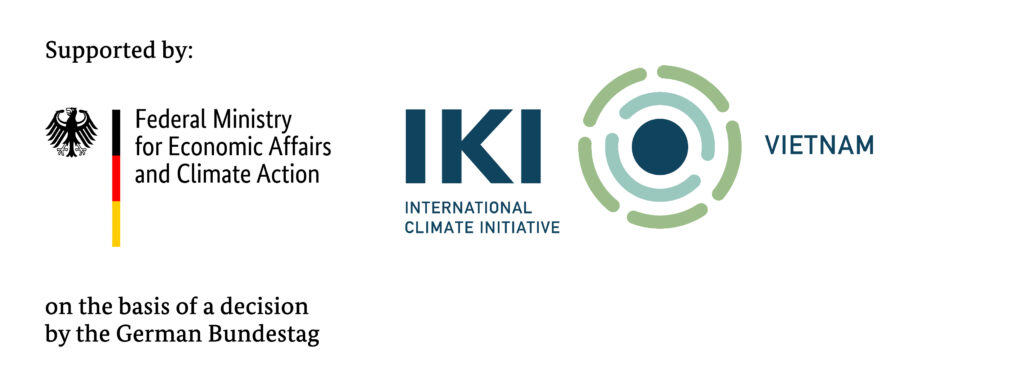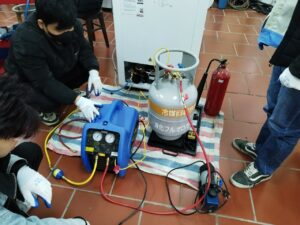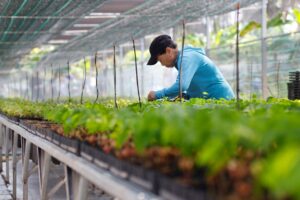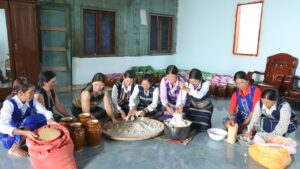“Climate change has been very complicated nowadays, the project came in to support vulnerable groups to help them become resilient to climate change. It is possible to evaluate that the project is very humane and meaningful.” shared Mr. Ho Tan Canh, Deputy Director of the Department of Labour, Invalids and Social Affairs
Quang Binh 19 December 2023, the final workshop of the project “Enhancing resilience of vulnerable communities to counter climate change impacts” was organised by the Association for Empowerment of Persons with Disabilities (AEPD). The project was implemented for 14 months from November 2022 to December 2023 in 4+ communes of An Thuy, Xuan Thuy in Le Thuy district and Truong Xuan, Tan Ninh in Quang Ninh district, Quang Binh province, Vietnam.
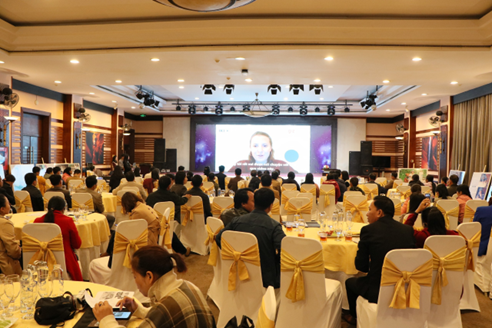
The project was designed to fulfill the 3 following outcomes: (1) Households of Persons with disabilities are empowered to actively cope with climate changes. (2) Vulnerable populations, notably households with people with disabilities (PWDs), have taken actions to reduce climate-induced loss and damage/production losses. (3) Capacity of local authority is strengthened to better help people in responding to climate changes.
The workshop welcomed leaders and representatives from provincial line departments of the Ministries of Natural Resources and Environment; Agriculture and Rural Development; Planning and Investment; Construction; Labor, War Invalids and Social Affairs; Foreign Affairs; Home Affairs; Information – Communications; Trade and Technology; Office of the Provincial Disaster Prevention and Control Steering Committee; Irrigation sub-department, Provincial Police; the Fatherland Front; Provincial Youth Union; Center for infrastructure management of industrial parks – Quang Binh Economic Zone; Provincial Red Cross; People’s Committees of Quang Ninh, Le Thuy, Bo Trach, Quang Trach, Tuyen Hoa, Minh Hoa districts, Ba Don town and Dong Hoi city.
At commune level, apart from the 4 project communes, there were representatives of nearly 20 communes throughout Quang Binh province. Representatives of beneficiary households, households with disabilities, communal disability clubs, and disabled youth clubs across the province were also invited to the workshop. In addition, colleagues from other organisations such as the Center for Disability and Development (DRD) from Ho Chi Minh City, Senior Consultant on Climate Change from Hue city, SRD Hanoi, and representative of IKI interface Vietnam were present at the workshop. Journalists from different news agents and local TV station reporters were also invited to report on the conference.
In the opening remarks, Mr. Ho Tan Canh, Deputy Director of the Department of Labour, Invalids and Social Affairs shared: “AEPD’s projects over the past 10 years are the endless efforts of AEPD team. Climate change has been very complicated nowadays, the project came in to support vulnerable groups to help them become resilient to climate change. It is possible to evaluate that the project is very humane and meaningful. The project has been a great success, bringing real benefits to vulnerable people, notably PWDs. The project itself and AEPD’s contributions are highly appreciated. We, thus, strongly recommend different sectors and agencies to strengthen the direction and care for supporting people with disabilities, coordinate with AEPD to implement its programmes, to promote resources, and further mobilize resources to support AEPD to achieve its mission of supporting persons with disabilities. We hope that AEPD will strive to mobilise beyond its scope, seek and apply for more projects, and be the closest support for PWDs. I also propose relevant sectors and department to create favourable conditions for AEPD in the implementation process of programmes/projects and have dedicated policies to support persons with disabilities in the area.”
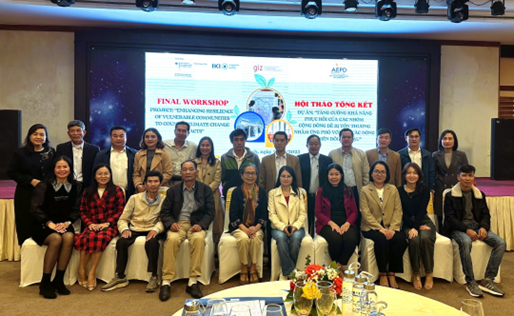
Followed the opening remarks were representatives from districts, communes, and beneficiaries to share their success stories, enabling factors for the project success, and effective cooperation between AEPD with different levels during the project implementation process. Mr. Ngo Mau Dinh – vice-chairman of An Thuy commune confirmed: “This is the most successful project in An Thuy to date”, while vice-chairmen of Tan Thuy and Truong Xuan emphasised the outstanding beneficiary-centric approach applied throughout the project implementation. Mr. Le Dinh Thi, vice-chairman of Tan Ninh commune said: “The special highlight that we want to emphasise is the implementation method of the project activities. It is entirely participatory. Our participation is of local government, beneficiary participation, participation of commune/village actors, technicians, and beneficiaries. This approach has mobilised different resources, while enhancing the role and value of persons with disabilities in the community”. He added “The project’s design is comprehensive and comprehensive, focusing on solving essential difficulties of beneficiaries who are households with disabilities, demonstrating the organisation of many activities at the same time, affecting many aspects and angles of life, creating a synergistic and resonant impact for disadvantaged groups in the community. For our commune, this project has been the first project with such an effective comprehensive design up to now, because other projects have only focused on a single facet.”
By the end of it, the project has achieved the following results:
- 162/150 (target) people who have implemented measures to improve their housing to be more resilient to disasters, including 10 houses (7 new and 3 repaired), 18 toilets, and 15 indoor water supply systems;
- 38/30 (target) families were supported with resilient watering systems and livelihood models to increase their resilience against extreme weather events;
- 4 training courses on CBDRM and 4 courses on WATSAN were organized for 219/200 representatives of commune committees for disaster prevention and control, and representatives of households with disabilities;
- 52 early warning tools and 4 hazard maps were printed, purchased, installed, and independently maintained according to the propositions of the local authority as a result of the CBDRM and hazard mapping;
- 584/320 people participating in public events (4 mock-drills and one competition) to learn and increase their awareness and knowledge about CBDRM and climate change adaptation.
Lessons learned and best practices in disability inclusive CBDRM is documented and widely shared with donors, partners, clients, communities, and the publics (828/500).
Taking this opportunity, AEPD took advantage of getting contributions from the Workshop participants to develop a new project. The discussion session focused on answering key questions on difficulties and challenges that vulnerable groups, especially those living in remote ethnic minorities areas are facing; their essential needs and possibilities of counterpart funds conditionally contributed by local authorities. The answers were aggregated and used for development of new projects to support vulnerable groups in Quang Binh province.
The “Enhancing resilience of vulnerable communities to counter climate change impacts” project was supported by the IKI Small Grants programme, which is part of the International Climate Initiative (IKI). IKI Small Grants is funded by the Federal Ministry of Economic Affairs and Climate Action (BMWK) and the Federal Foreign Office (AA) and implemented by the Deutsche Gesellschaft für Internationale Zusammenarbeit (GIZ) GmbH.

For more information, please visit: http://www.aepd-vn.org/
